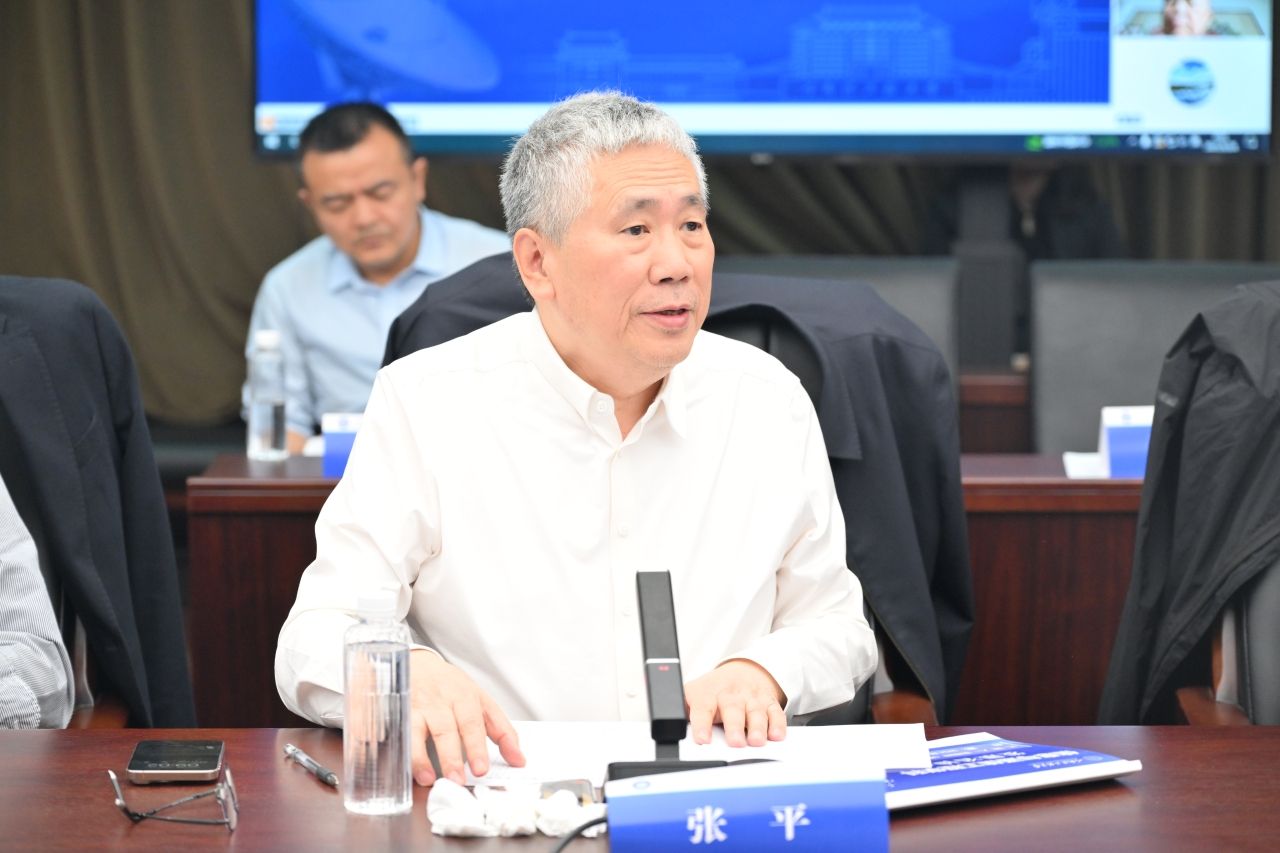
On September 28, Harbin Engineering University (HEU) held a consultation meeting on the development of the Information and Communication Engineering discipline in the large conference room on the 8th floor of the Main Building. More than ten experts and scholars participated online and offline, jointly offering suggestions for the development of the Information and Communication Engineering discipline. HEU President YIN Jingwei attended the meeting and delivered a speech. Vice President YU Zhiwen presided over the meeting. LV Kaidong, Head of the Propaganda Department, and CHEN Hailong, Assistant to the President, were also present.

YIN Jingwei, on behalf of HEU, expressed gratitude to the academicians and experts for their long-standing concern, support, and assistance to the university. He highlighted that information and communication technology is a crucial component of strategic emerging industries and future industries. Facing new situations and challenges characterized by deep integration, systematic innovation, and intelligent leadership in the development of information and communication technology, HEU must closely align with major national strategic needs and the development requirements of the country, further highlight disciplinary characteristics, and support the university’s “Double First-Class” initiative. The university will, based on the opinions and suggestions of the experts and scholars, further strengthen overall planning, continuously optimize the disciplinary layout, improve the management system, operational mechanisms, and support systems, and fully promote more significant achievements in talent cultivation, scientific research, and social services within the Information and Communication Engineering discipline.

Academician ZHANG Ping presided over the consultation and discussion session. The participating academicians and experts engaged in exchanges and discussions on various aspects of the discipline, including its distinctive advantages, talent cultivation, scientific research, faculty development, interdisciplinary integration, and international exchange and cooperation.
The participants unanimously acknowledged the achievements of the Information and Communication Engineering discipline. They also pointed out that future disciplinary development should be closely integrated with major national strategic needs, further strengthen the disciplinary characteristics and directional layout, deepen the refinement of scientific issues, enhance basic and frontier research, promote interdisciplinary integration, and actively introduce artificial intelligence to empower disciplinary development.
The head of the College of Information and Communication Engineering reported on the development and construction status of the Information and Communication Engineering discipline.
